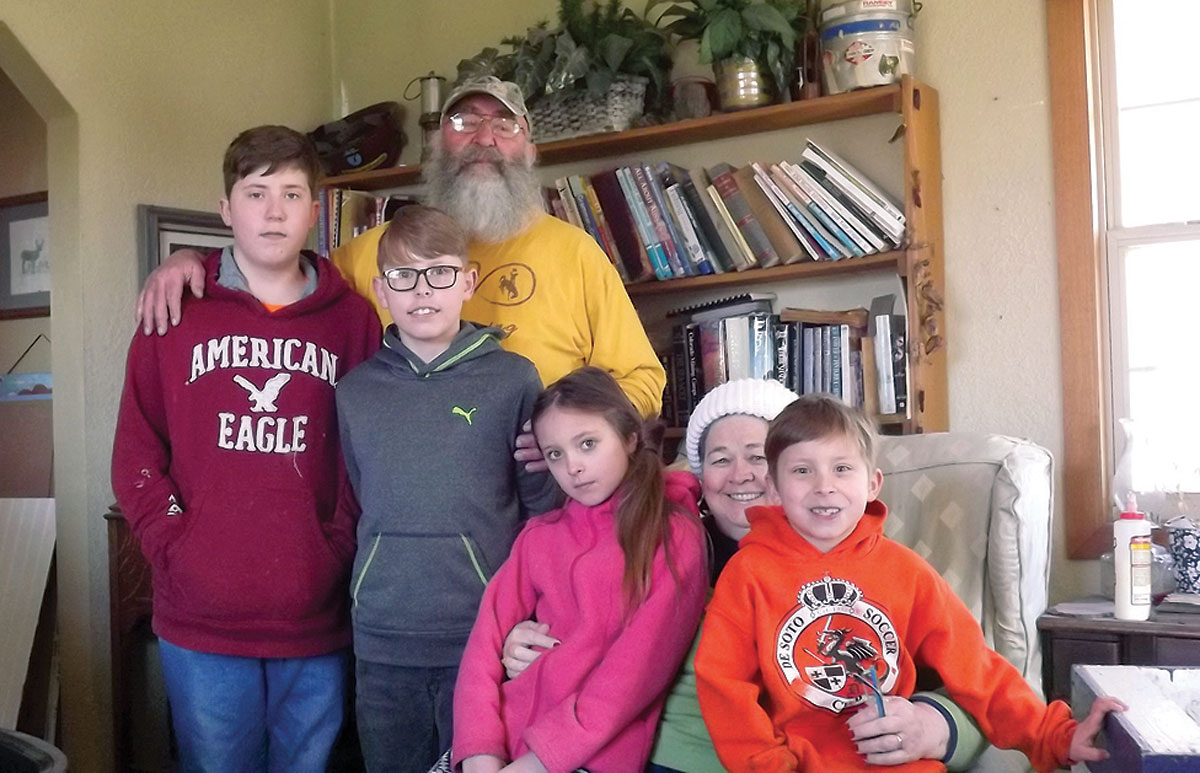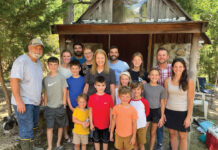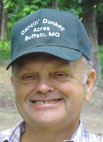
Couple configures a small farming operation around two species
Terry and Marylou Anderson operate the LT Livestock Farm on 10 acres in Louisburg, Mo.
Terry is from Kalispell, Mont., and Marylou is from Cheyenne, Wyo.
Marylou was raised on an Angus ranch. She has a degree in agricultural journalism and trained as a veterinary technician. Terry was in mining and trucking before he retired, but had worked on the ranch. They have seven children and 21 grandchildren. The couple moved to Branson, Mo., in 1998 and then settled in Louisburg in 2000.
LT Livestock specializes in Babydoll Southdown sheep and American Aberdeen cattle.
“I was young when two of my brothers took over the Frontier FFA Chapter’s flock of Southdown sheep,” Marylou said. “I enjoyed the Southdowns because of their gentle nature, interesting personalities and small size. We had Suffolks when our children were in 4-H. They were good sheep but they did not appeal to me.”
“In 2005, I was experiencing an ‘empty nest’ period where I wanted a hobby farm with just enough animals to feed us and our kids’ families. I started researching breeds of livestock that would work well on a hobby farm and found heritage Southdowns, which are now called ‘Babydoll’ Southdowns. We got two ewes and a ram in 2009 and started a flock. We have enjoyed the Babydolls so much we changed our goal to having a high-quality flock that will provide show-quality animals for sale, as well as food for our tables. We currently have a total of 28 ewes consisting of both pure and crossbred Babydolls and a few standard Southdowns. So far it has been very easy to sell our surplus lambs just by mentioning them on our Facebook page.”
“Our grandson, Asher, is our showman and we attend the Texas and Dallas county fairs each year. When each grandchild turns 10, he or she gets a Babydoll ewe and benefits from the sale of the lambs.”
The Southdown is one of the oldest British sheep breeds. In 1780 John Ellman set out to standardize the Southdown as a small, dual purpose breed that grew in popularity into the early 1900s. The original Southdown reached the United States in 1803 and became quite popular. World War I increased the demand for larger carcasses in both Britain and the United States and the Southdown was bred to be a larger animal.
In 1986, Robert Mock began searching for breeding stock that exhibited the original, small Southdown characteristics. The Olde English Babydoll Southdown registry was created in 1991 to bring back the original conformation and characteristics of the breed.
Now the North American Babydoll Southdown Sheep Association and Registry is the largest Babydoll Southdown registry.
“Terry and I are putting together the Babydoll Southdown Showfest at the Dallas County Fairgrounds (in Buffalo, Mo.) from Aug. 31 through Sept. 2. We register with NABSSAR and that organization is donating prizes. It will be a good opportunity for people to see how great the Babydolls are for meat, fine wool, and for 4-H and FFA projects.”
Like many smaller-scale sheep breeders in the Ozarks, the Andersons also run into a few issues.
“One of the toughest problems for us as small breeders is to find a competent shearer who will take the time to come to our farm,” Terry said. “We usually sell the wool to the shearer at market price just to make it convenient for everyone.”
In addition to their sheep, the couple also is in the cattle business.
“We have seven American Aberdeen and Angus cows and calves, and are building a small herd,” Marylou said. “The American Aberdeen are pure Angus, but are much smaller, require less space and are very easy to handle. In addition to outstanding meat, an American Aberdeen can provide enough milk for both her calf and a family. We separate the cow and calf at night, milk in the morning, and then turn the pair out during the day. We enjoy delicious milk and the calf is healthy.”
Every fullblood American Aberdeen traces back to the foundation herd developed at the Trangie Research Centre in New South Wales, Australia from herd of registered, champion Angus cattle purchased in 1929.
Mature American Aberdeen bulls are between 40 and 48 inches measured at the shoulder and weigh from 900 to 1,500 pounds. Mature cows are 38 to 46 inches, and weigh between 700 to 1,100 pounds. Aberdeens are naturally polled and have excellent roughage conversion.
“Terry and I have a goal of 75 high quality Babydoll Southdown ewes and 10 American Aberdeen cows,” Marylou said. “We want a legacy for our grand children and to share these breeds with other small farmers.”






